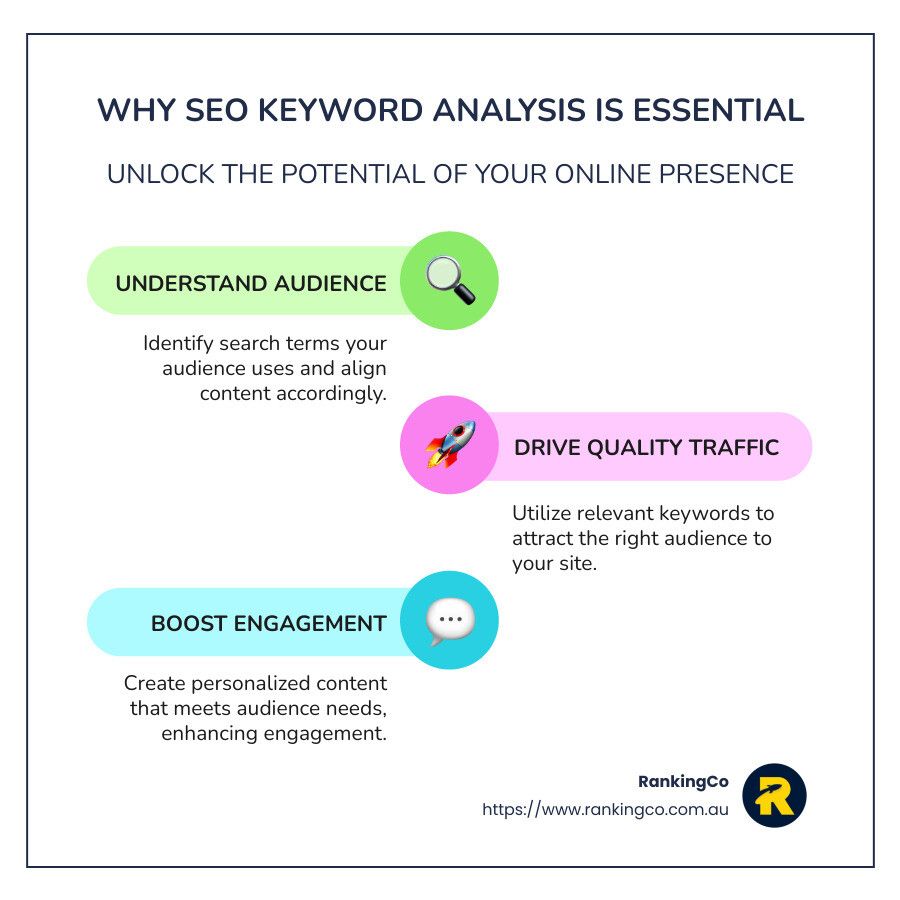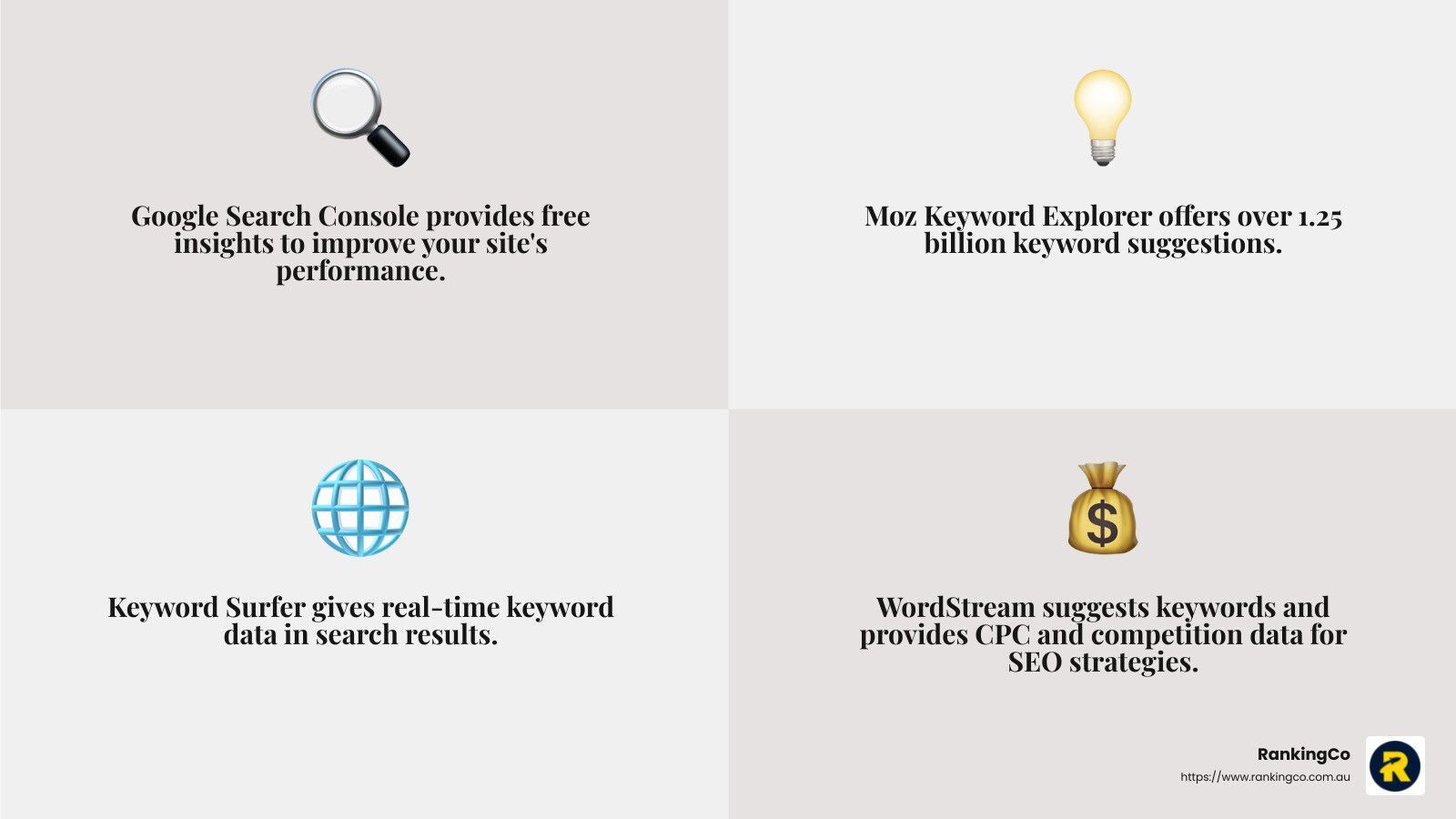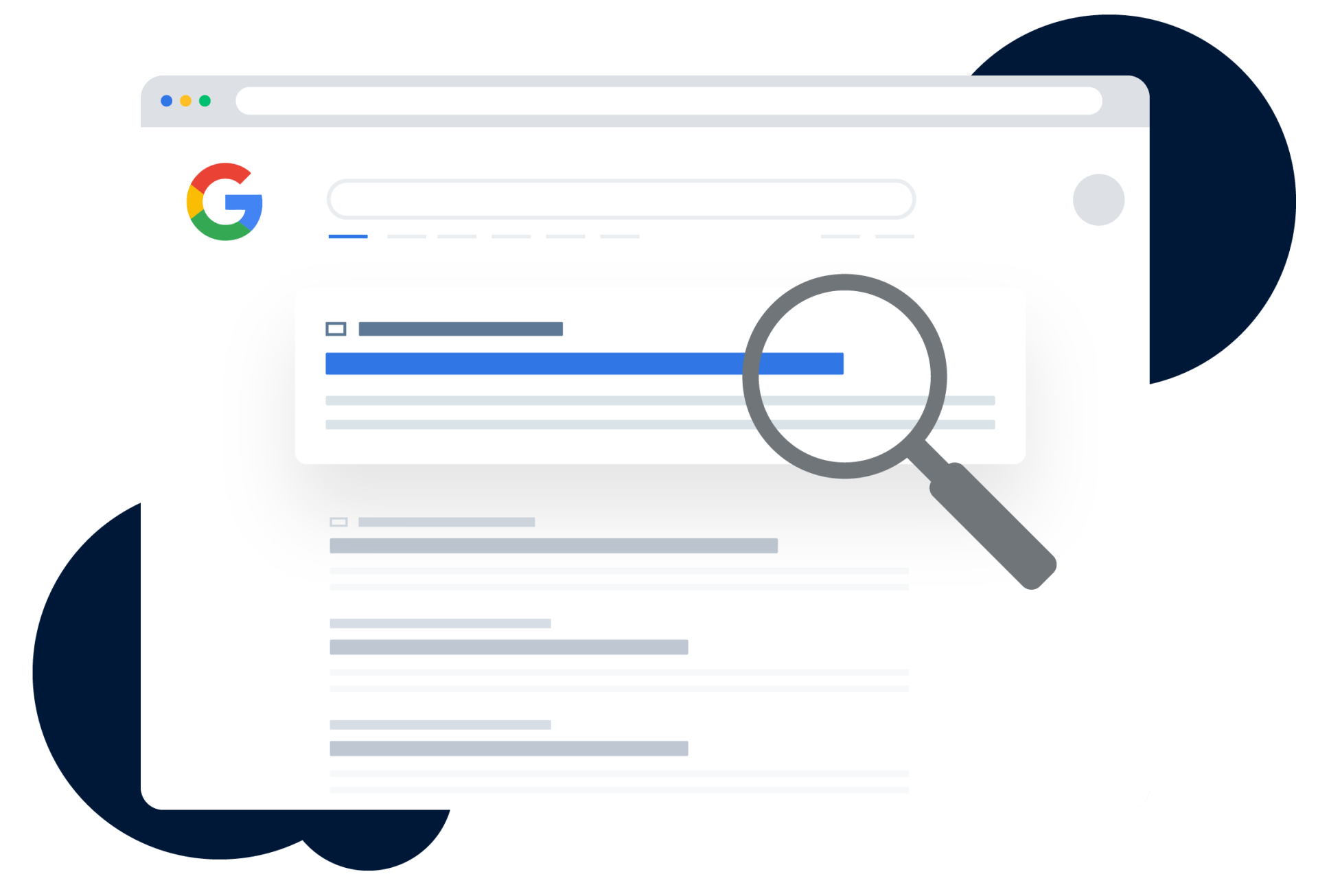The Art of Keyword Analysis: Your Path to SEO Mastery
Why SEO Keyword Analysis is Essential for Success
SEO keyword analysis is crucial to mastering search engine optimisation (SEO). At its core, it's the art of understanding what search terms your audience is using and leveraging that insight for better online visibility. For tech-savvy small business owners, getting this right means more traffic, more engagement, and ultimately, more sales. So, what exactly does SEO keyword analysis entail, and why should it be a cornerstone of your digital strategy?
- Overview: SEO keyword analysis involves identifying popular search terms that are relevant to your business and creating content around those terms to attract the right audience.
- Importance: Finding the right keywords means tapping into the questions your audience is asking. This directs quality traffic to your site and improves your ranking on search engines like Google.
- SEO Strategy: Integrating keyword analysis into your SEO strategy enables personalised content that meets your audience's needs, boosts brand visibility, and improves customer engagement.
As Amber Porter, co-founder and CEO of RankingCo, I've seen the transformative power of effective SEO keyword analysis. With years of crafting data-driven marketing strategies that deliver measurable results, I'm here to guide you through the digital marketing landscape and help your business thrive.

Understanding SEO Keyword Analysis
SEO keyword analysis is like the compass guiding your online journey. It helps you understand what your audience is searching for and why. Let's break it down into three key components: keyword research, search intent, and conversion potential.
Keyword Research
Think of keyword research as the foundation of your SEO strategy. It's about finding the words and phrases your potential customers use when searching online.
Here's how you can start:
- Identify Topics: Begin by listing broad topics related to your business. For example, if you run a bakery, topics could include "bread recipes" or "cake decorating tips."
- Expand with Keywords: Use tools like Google Search Console or WordStream's Free Keyword Tool to find specific keywords within those topics. These tools can help you see what people are searching for and how often.
- Analyse Search Volume: Look for keywords with a good balance of high search volume and low competition. This way, you can target terms that are popular but not overly competitive.
Search Intent
Understanding search intent is crucial. It’s about figuring out what users want when they type a query into a search engine.
There are four main types of search intent:
- Informational: Users are looking for information. e.g., "how to bake sourdough bread."
- Navigational: Users want to find a specific site or page. e.g., "Facebook login."
- Commercial: Users are researching products or services. e.g., "best stand mixer reviews."
- Transactional: Users are ready to buy. e.g., "buy stand mixer online."
Aligning your content with the right search intent can significantly boost your chances of converting a visitor into a customer.
Conversion Potential
Once you know the keywords and intent, the next step is to evaluate the conversion potential. This means assessing which keywords are likely to lead to sales or other desired actions.
- Relevance: Ensure the keywords are closely related to your products or services.
- Buyer Journey: Consider where the user is in the buyer’s journey. Are they just browsing, or are they ready to purchase?
- Content Match: Make sure your content answers the searcher's query effectively. This builds trust and encourages conversions.
By focusing on these aspects, you can craft a strategy that not only attracts visitors but also turns them into loyal customers.
Understanding these elements of SEO keyword analysis will set you on the path to SEO mastery. Next, we'll dig into the different types of keywords in SEO and how they fit into your overall strategy.
Types of Keywords in SEO
In SEO keyword analysis, understanding the different types of keywords is essential. Each type serves a unique purpose and aligns with various stages of the user journey. Let's explore the four main types of keywords: informational, navigational, commercial, and transactional.
Informational Keywords
Informational keywords are used when users seek knowledge or answers. These are often framed as questions or how-to queries. For example, someone might search for "how to plant a lemon tree" or "benefits of drinking green tea."
- Purpose: To provide information or educate
- Example Searches: "What is climate change?" or "DIY home renovation ideas"
- Content Strategy: Create detailed guides, tutorials, or educational blog posts to satisfy these queries
Informational keywords are crucial for building authority and trust with your audience. By addressing these queries, you position your brand as a helpful resource.
Navigational Keywords
Navigational keywords are used when users intend to find a specific website or page. These searches are often brand-related, like "Twitter login" or "YouTube homepage."
- Purpose: To direct users to a specific site or page
- Example Searches: "Amazon customer service" or "LinkedIn profile"
- Content Strategy: Ensure your website is easily navigable and that your brand appears prominently in search results
While these keywords might not directly lead to conversions, they are vital for brand visibility and ensuring users can find you easily.
Commercial Keywords
Commercial keywords indicate that a user is in the research phase of the buying process. They are comparing products or services, looking for reviews, or seeking recommendations. For example, "best smartphone 2023" or "top-rated washing machines."
- Purpose: To research products or services before purchasing
- Example Searches: "best vacuum cleaner reviews" or "top 10 laptops for students"
- Content Strategy: Develop content that compares products, offers reviews, or highlights features and benefits
These keywords are essential for capturing potential customers who are evaluating options and making decisions.
Transactional Keywords
Transactional keywords signal that a user is ready to make a purchase or complete a transaction. These are high-intent searches like "buy Nike running shoes" or "order pizza online."
- Purpose: To complete a transaction or make a purchase
- Example Searches: "buy iPhone 14" or "cheap flights to Sydney"
- Content Strategy: Optimize product pages, create compelling calls to action, and ensure a smooth checkout process
Focusing on transactional keywords can lead directly to conversions, making them highly valuable for any e-commerce strategy.
Understanding these types of keywords is a cornerstone of effective SEO keyword analysis. By aligning your content with the appropriate keyword types, you can better meet user needs and guide them through the customer journey.
Next, we'll explore some top free tools for conducting SEO keyword analysis, helping you identify and leverage these keywords effectively.
Top Free Tools for SEO Keyword Analysis
Finding the right tools for SEO keyword analysis can make a world of difference in your strategy. The best part? Some of these tools are completely free! Let's explore four top free tools that can help you uncover valuable insights and improve your SEO game.
Google Search Console
Google Search Console is a must-have for anyone serious about SEO. It provides a wealth of data about how your site performs in Google searches.
- Performance Report: See which keywords bring traffic to your site and their average search position.
- Index Coverage: Identify and fix issues that might prevent your pages from being indexed.
- URL Inspection: Check how Google views specific URLs on your site.
Google Search Console is indispensable for understanding how your site is performing and where you can make improvements. Best of all, it's completely free!
Moz Keyword Explorer
Moz Keyword Explorer is another fantastic tool that offers valuable insights into keyword opportunities.
- Keyword Suggestions: Get over 1.25 billion keyword suggestions.
- Difficulty Score: Understand how hard it is to rank for a particular keyword.
- Priority Score: Moz combines volume, difficulty, and your own interest to give you a priority score.
While Moz offers a paid version, the free version provides 10 queries per month, which is perfect for small businesses or those just starting out.
Keyword Surfer
Keyword Surfer is a handy Chrome extension that provides keyword data directly in your search results.
- Volume Estimates: See search volume estimates for your keywords.
- Related Keywords: Get a list of similar keywords to expand your strategy.
- Country-Specific Data: View keyword data specific to different countries.
This tool is great for quick, on-the-go keyword analysis, and because it's a browser extension, it's incredibly easy to use.
WordStream Free Keyword Tool
WordStream's Free Keyword Tool is perfect for generating keyword ideas based on Google search data.
- Keyword Suggestions: Enter a keyword or URL to get hundreds of related keyword ideas.
- Competition Level: Understand how competitive a keyword is.
- Estimated CPC: Get cost-per-click data to help plan your paid search campaigns.
WordStream's tool is particularly useful for businesses looking to optimize both their organic and paid search strategies.

These tools are essential for anyone looking to master SEO keyword analysis without breaking the bank. They provide the insights needed to optimize your content and improve your search rankings effectively.
Next, we'll dig into how to perform effective keyword analysis by considering factors like keyword difficulty, monthly search volume, and competitive analysis.
How to Perform Effective Keyword Analysis
Performing effective SEO keyword analysis is crucial for improving your website's visibility and traffic. Let's break down the key components you need to focus on: keyword difficulty, monthly search volume, and competitive analysis.
Keyword Difficulty
Keyword difficulty measures how challenging it is to rank on the first page of search results for a specific keyword. This metric helps you identify which keywords are worth targeting based on your current SEO strength.
- Low Difficulty: Easier to rank for, but often with lower search volume. Ideal for new websites or those in niche markets.
- High Difficulty: Tougher to rank for, usually with higher search volume. Suitable for established sites with strong SEO profiles.
Using tools like Moz Keyword Explorer can give you a clear difficulty score, helping you prioritize keywords that offer the best balance of competitiveness and potential traffic.
Monthly Search Volume
Monthly search volume indicates how often a keyword is searched for each month. It's a vital metric for understanding the potential traffic a keyword can bring.
- High Volume: Keywords with high search volume can drive significant traffic but often come with high competition.
- Low Volume: These keywords might not bring as much traffic, but they can be easier to rank for and often have more specific intent.
Consider using tools like Google Keyword Planner to get accurate search volume data. Context matters—what's low in one industry might be high in another.
Competitive Analysis
Competitive analysis involves examining how your competitors rank for the keywords you’re targeting. This step helps you understand the landscape and find opportunities they might be missing.
- Identify Competitors: Use tools like Google Search Console to see which sites rank for your target keywords.
- Analyse Strategies: Look at the content and backlinks of top-ranking competitors to understand what works.
- Find Gaps: Identify keywords your competitors aren't targeting and consider them as opportunities for quick wins.
By combining insights from keyword difficulty, search volume, and competitive analysis, you can craft a strategy that targets the right keywords for your business, maximizing both traffic and conversion potential.
Next, we'll address some frequently asked questions about SEO keyword analysis to further clarify this essential process.
Frequently Asked Questions about SEO Keyword Analysis
How to Analyse Keywords for SEO?
SEO keyword analysis involves understanding a few key metrics: difficulty, search volume, and intent.
- Difficulty tells you how challenging it is to rank for a keyword. If you're just starting out, look for keywords with lower difficulty scores. These are easier to rank for but might have less traffic.
- Search Volume shows how many times a keyword is searched each month. High-volume keywords can drive lots of traffic but are often competitive. Low-volume keywords might be easier to rank for and can still be valuable if they target specific needs.
- Intent is crucial. It helps you understand what users want when they search. Are they looking for information, trying to steer to a website, comparing products, or ready to make a purchase?
Using tools like WordStream Free Keyword Tool can help you gather data on these metrics. Look for a balance between these factors to choose the best keywords for your strategy.
What is Keyword Analysis in SEO?
Keyword analysis is the process of researching and evaluating search terms that users enter into search engines. This analysis helps you understand the user queries and the potential they have to drive traffic to your site.
By analyzing keywords, you can:
- Identify Trends: Spot what topics are gaining interest over time.
- Understand User Needs: Learn what your audience is searching for and tailor your content to meet those needs.
- Optimize Content: Use the right keywords to improve your search engine rankings and attract more visitors.
Keyword analysis is not a one-time task. It's an ongoing process that adapts as search trends and user behaviors change.
What are the 4 Types of Keywords in SEO?
In SEO, keywords are categorized based on the intent behind user searches. Understanding these types helps in crafting content that aligns with what users are looking for:
- Informational Keywords: Users are looking for information. Example: "how to fix a leaky tap."
- Navigational Keywords: Users want to find a specific website or page. Example: "Facebook login."
- Commercial Keywords: Users are researching products or services. Example: "best budget laptops 2023."
- Transactional Keywords: Users are ready to make a purchase or complete an action. Example: "buy iPhone 12 online."
By targeting the right mix of these keywords, you can better meet the needs of your audience and improve your site's visibility.
Next, we'll explore how to leverage these insights to build a strong SEO strategy, focusing on local SEO and emerging AI technologies.
Get Expert Help and Watch Your Business Grow
In the changing landscape of digital marketing, mastering SEO keyword analysis is crucial for success. At RankingCo, we understand the power of targeted keywords, especially in the field of local SEO. By focusing on local search queries, we help small businesses in Brisbane and beyond reach their target audience more effectively.
Local SEO is essential for businesses aiming to attract nearby customers. With four out of five consumers using local search to find information about nearby businesses, it's clear that optimizing for local keywords can significantly boost visibility and engagement. We integrate these insights into our strategies to ensure that your business stands out in local searches.
Moreover, our use of advanced AI technologies sets us apart. By using AI, we're able to analyze market trends with precision, creating campaigns that are not only effective but also adaptive to the rapid changes in the digital landscape. This technological edge allows us to deliver superior results and set new performance benchmarks.
As you continue to develop your SEO strategy, keyword analysis is not a one-time task. It's an ongoing process that requires regular updates and adjustments. With the right mix of local SEO and cutting-edge AI technologies, you can achieve both short-term wins and long-term success.
Ready to lift your SEO game? Explore our SEO services and find how we can help your business thrive online.















